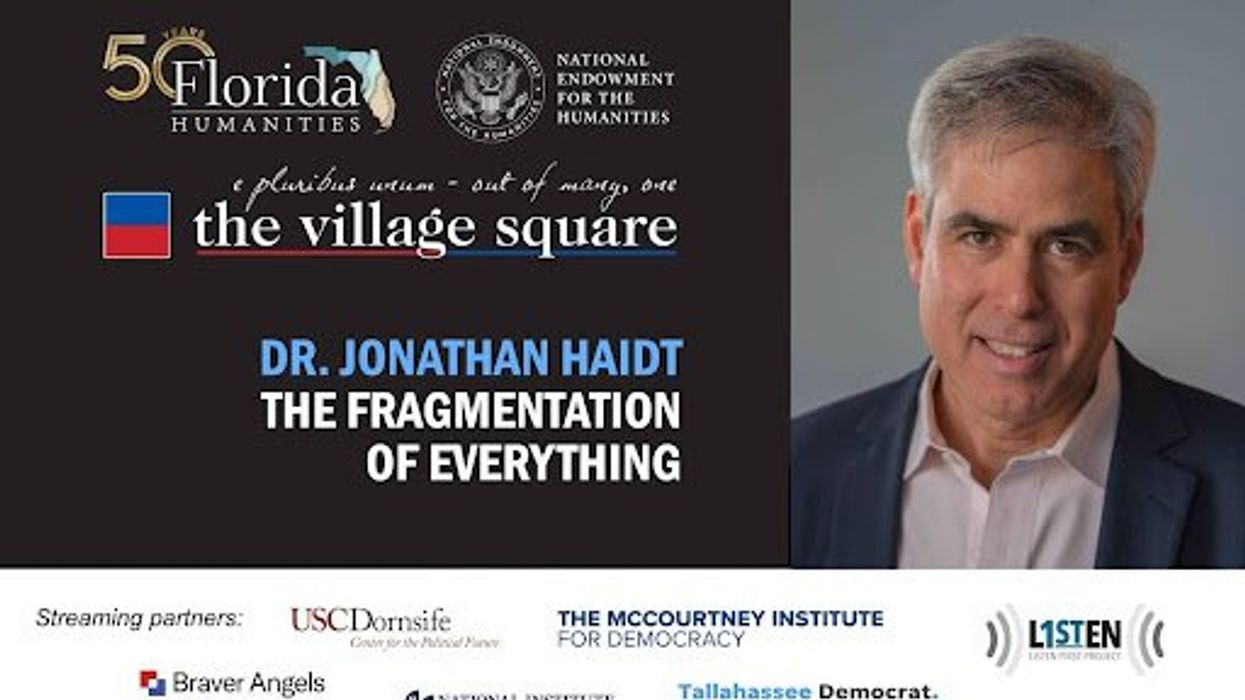On Wednesday, Feb. 28, at 3 pm ET (12 pm PT), Citizen Connect will stream “After Babel: The Fragmentation of Everything,” with special guest Dr. Jonathan Haidt. The program is presented in partnership with Florida Humanities, the National Endowment for the Humanities and The Village Square, an organization with a mission to build civic trust between people who don’t look or think alike in American hometowns.
Learn more about the program and register here.
Program description: What if, at a pinnacle of our civilization’s technological achievement, everything just broke — the institutions we’ve come to rely upon in navigating a modern complex world, the shared stories that hold a large and diverse democratic republic together, and even a common language through which to navigate the rising tide of crisis. According to renowned social psychologist and author Jonathan Haidt, this describes our current reality, one that he calls “After Babel.” In this new normal, we are scattered by a digital environment into feuding tribes that are governed by mob dynamics and driven by a minority of ideological outliers, made stupid at warp speed by group think, and — thanks to social media — armed with billions of metaphorical “dart guns” with which to immediately wound “the enemy” in ways that are hardly only metaphorical. What could go wrong?
About Dr. Haidt: Jonathan Haidt is a social psychologist and professor of ethical leadership at New York University’s Stern School of Business. He’s the author of four books, two of which became New York Times best sellers, including “The Happiness Hypothesis,” “The Coddling of the American Mind” and “The Righteous Mind: Why Good People Are Divided by Politics and Religion” — and the forthcoming “The Anxious Generation.” He’s been named a top 100 global thinker by Foreign Policy magazine and one of the world’s 65 best thinkers of the year by Prospect magazine. His four TED Talks have been viewed more than 7 million times.




















